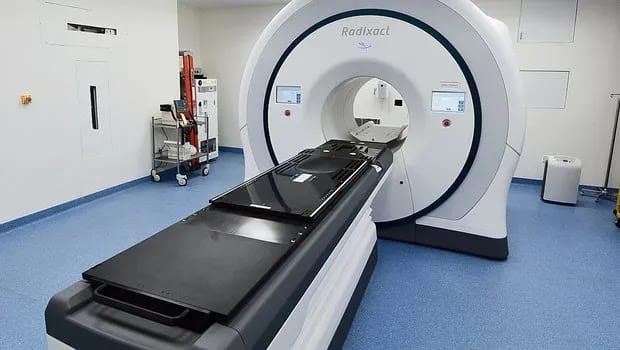In a major boost for the country’s healthcare sector, the government has made a significant investment in cancer treatment technology, acquiring advanced radiotherapy machines for installation in two of the nation’s largest public hospitals. These state-of-the-art machines, earmarked for Parirenyatwa Group of Hospitals and Mpilo Central Hospital, are part of a broader initiative to enhance cancer treatment services in public health institutions.
The move, seen as a critical step in addressing the growing cancer burden, involves an investment of US$2.4 million from the Treasury for the purchase of cutting-edge radiotherapy machines. This development comes as a relief to many, especially considering the breakdown of the last functional radiotherapy machine at Parirenyatwa in 2020, which had been operational since its acquisition nearly a decade ago with assistance from the International Atomic Energy Agency.
Additionally, plans are underway to procure Gamma Knife machines for both hospitals. These machines represent the latest in radiosurgery technology, utilizing gamma radiation beams for intricate procedures on tumors in the brain, spinal cord, and other sensitive areas.
The government’s commitment extends beyond new acquisitions. An additional US$2.3 million has been released for the repair of existing radiotherapy machines—three at Parirenyatwa and two at Mpilo. This move is critical, given that Mpilo’s last machine broke down a year before Parirenyatwa’s machine, leaving a significant gap in public cancer treatment services.
Finance, Economic Development and Investment Promotion Minister, Professor Mthuli Ncube, highlighted the government’s focus on expediting the procurement of vital cancer diagnosis and treatment equipment. He confirmed the purchase of the radiotherapy machines and the planned acquisition of Gamma Knife machines for treating brain tumors.
In a forward-looking fiscal strategy, Prof. Ncube indicated a potential expansion of the “sin tax” regime, currently levied on cigarettes and alcoholic beverages, to include fizzy drinks. This expansion aims to generate additional revenue for the health sector, particularly for combating cancer and other non-communicable diseases. This proposal aligns with global health financing trends, where governments are increasingly seeking innovative ways to fund healthcare needs.








